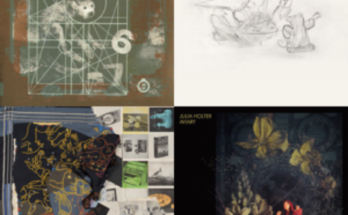Cults leaders Madeline Follin and Brian Oblivion recently opened up to Pitchfork about how the stress of touring and working together put such a strain on their romantic relationship that they decided to break up. Thankfully, Follin and Oblivion set aside their differences, and decided to maintain a professional relationship, for the sake of the band.
Static lacks the abundance of outstanding catchy songs that were on their debut album, but Cults does offer decent instrumentation with this sophomore album. The album recycles several of their familiar elements, such as Follin’s youthful vocals and Oblivion’s simple but effective guitar clanging. However, the elements combine to produce a different vibe than their past album created. Static taps into the side of Cults that merges pop-ballad with heartbreaking lullaby.
One example of their unique style is “Always Forever,” which has a mystical tone. The lyrics expose tender emotions surrounding love, making the song seem reminiscent of “You Know What I Mean.” Follin sings, “You and me, always forever. We can stay alone together.” The bass and drums offer some stability, though, pushing the mystical sound toward calmness, rather than creepiness.
The band combines orchestral sounds with exposed piano notes, momentum-driving guitars, and funky bass lines on “High Road”. The guitar and bass movements in the song cause it to sound similar to Interpol’s music, only softer. In addition to the compelling instrumentation, the song is an example of the power that Follin’s voice has over the music. Her vocals sound polished and smooth, but their high pitch creates a sense of innocence in the music. The contrast between innocent sounds, and lyrics describing experience and regret causes an interest dynamic to persist throughout the album. On “Were Before,” Oblivion sings, “I’ve been around a few blocks,” before Follin sings about wanting to return to the “way we were before.” The conflict of wanting to return to the past, without losing hard-earned knowledge, haunts the album, and creates a desire for resolution.
“Were Before” reveals Follin and Oblivion’s desires to continue getting along, and patching up the any damage inflicted by their break-up. They sort through the issues of their current friendship beautifully, singing, “Don’t give in to the small talk. Don’t give up on the things that we adore.”
“Keep Your Head Up” changes the pace of the album, and introduces the band’s potential for anthem-like rock songs. The lyrics reflect similar themes used throughout the album, but turn toward embracing the positive side of things during the chorus. The song is as fuzzy and rich as the others, but the multiple-singer chorus introduces an up-beat attitude. Apart from “Keep Your Head Up,” the album focuses strongly on rich, but gentle, instrumentation. The interplay between the instruments lends a hand in keeping the album interesting, despite the excess of slow, emotional songs.
As a whole, the album is toned-down from their debut, but the change of pace works for them. The absence of instantly-catchy songs may cause the album to slip through the cracks, but the slower songs offer a space for Follin and Oblivion to pick apart their feelings, and work toward a happier future. The ending seems somewhat unresolved, both musically and lyrically. The last song is titled “No Hope,” and it seems to reflect just that: a lack of hope. Follin sings, “The air’s much colder and there’s not much left to say,” and “You kept your distance when I needed you the most.” While such lyrics are bleak, the fact that the group decided to release the song suggests that maybe they actually do have hope. They are just still searching for a way to turn hope into real results.
Rating: W – P – 7/10 (Out of W-P-G-U)
Key Tracks: “I Can Hardly Make You Mine,” “Keep Your Head Up,” “We’ve Got It”
RIYL: Guards, Beach House, Real Estate
Stream Static below:




